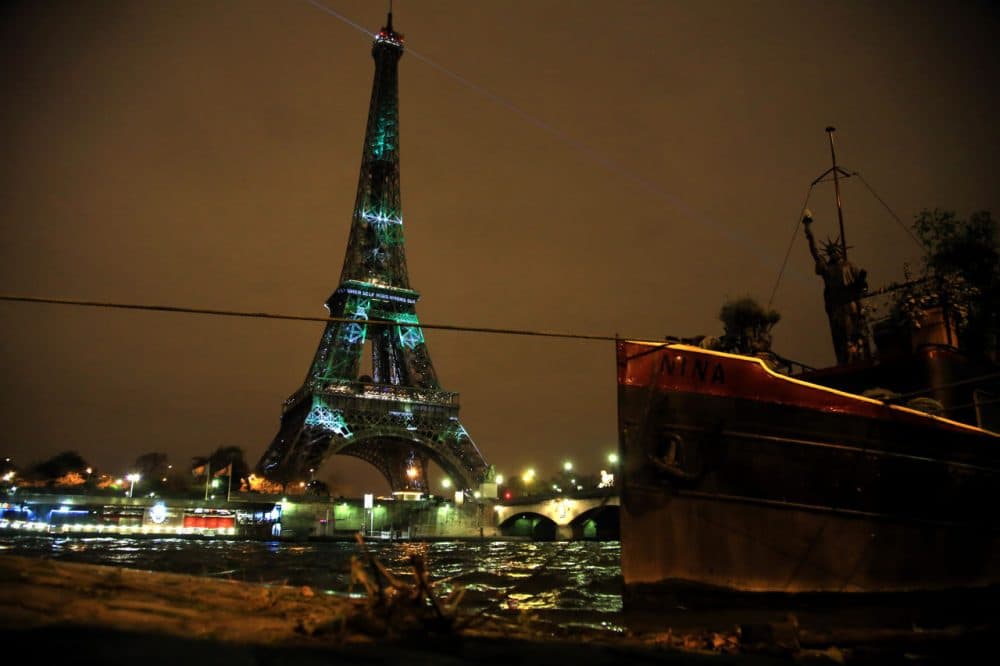Advertisement
The Price Tag On Promises To Address Climate Change
Resume
Part five in our series on the Paris climate talks.
Many of the leaders who have congregated in Paris for the COP21 climate talks have urgently advocated for action to address climate change. But with those promises comes a price tag that reflects the cost of transitioning to cleaner fuels and helping developing countries bypass the dirty phase of development.
Guest
Robert Stavins, professor of business and government at the John F. Kennedy School of Government at Harvard. He is also director of the Harvard Environmental Economics Program and the Harvard Project on Climate Agreements. He tweets @RobertStavins.
More
The Hill: Republicans Vow To Deny Obama Climate Funds To Derail Paris Talks
- "'We pledge that Congress will not allow U.S. taxpayer dollars to go to the Green Climate Fund until the forthcoming international climate agreement is submitted to the Senate for its constitutional advice and consent,' 37 Republican senators wrote in a letter to Obama on Thursday. The fund, a pool of public and private money, is meant to help poorer nations prepare for climate change."
The New York Times: The Green Tech Solution
- "The authors point out that according to the United Nations Intergovernmental Panel on Climate Change, the expected economic costs of unaddressed global warming over the next century are likely to be about 3 percent of world gross domestic product. This is a big, gradual problem, but not the sort of cataclysmic immediate threat that’s likely to lead people to suspend their immediate self-interest."
The New York Times: Paris Climate Talks: Getting Down To Business On Day 3
- "The finance process is crucial to the success of the climate change negotiations. As always, it goes back to Hillary Clinton’s 2009 pledge in Copenhagen that rich countries would mobilize $100 billion annually by 2020 to help poor countries adapt to the ravages of climate change and to make the expensive transition to cleaner energy sources from cheap fossil fuels."
This segment aired on December 7, 2015.